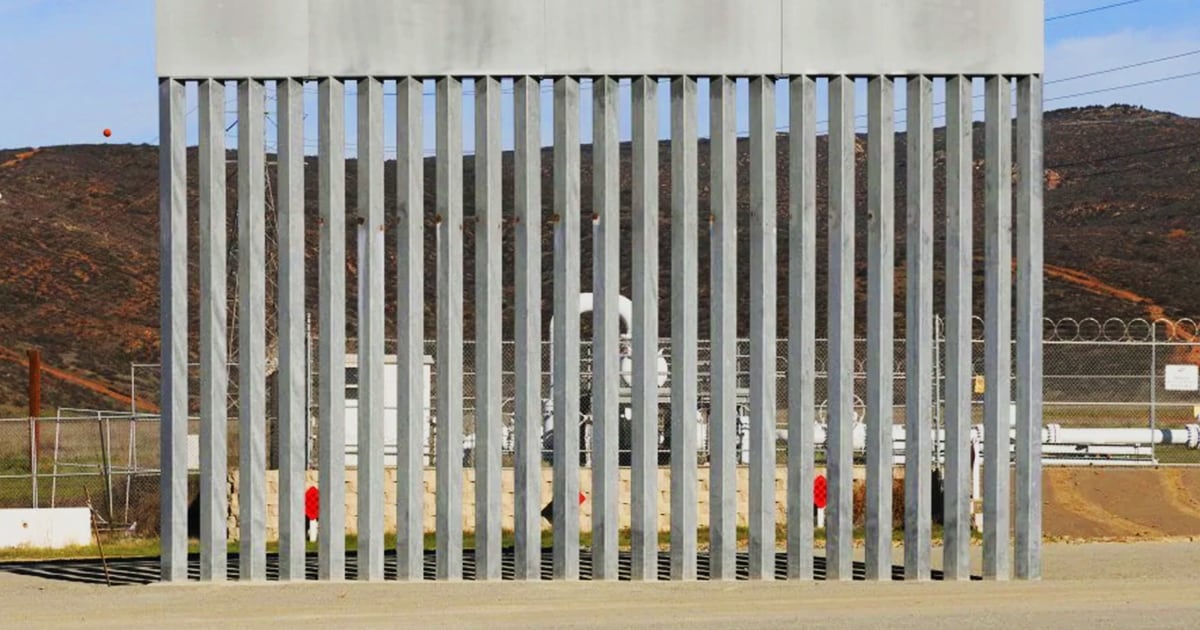Nathan Gardels is the editor-in-chief of Noema Magazine. He is also the co-founder of and a senior adviser to the Berggruen Institute.
President Trump now appears poised to go as far as declaring a national emergency in order to fund his border wall. While Trump’s crisis is undoubtedly fabricated — border crossings have been on a downward trend in recent years — understanding why he is digging his heels in requires a deeper grasp of the popular instinct that attracted so many voters to Trump in the first place.
Economic globalization and borderless technology foster convergence among countries, disrupting the old boundaries of sovereignty. But as I wrote shortly after Trump’s election, culture and politics, rooted in emotion and a sense of belonging, engender a divergent “search for shelter in the familiar ways of life that register a dignity of recognition among one’s own kind and constitute identity against the swell of seemingly anonymous forces.”
Political elites who have ignored or failed to understand this primal reality of national sentiment have been swept away in recent years, from Great Britain and the United States to Hungary, Poland, Austria, Italy and, most recently, Brazil.
Instead of so readily seeing those who want to defend their way of life as bent on resurrecting the ghost of fascism, adherents of a more liberal temperament should aim to own national sentiment. It is worth reflecting on how Charles De Gaulle led France forward after a war driven by nationalist fervor devastated much of Europe.
In a book written 25 years ago titled “Charles De Gaulle: Futurist of the Nation,” Régis Debray described the former French president’s idea of the nation as “existential.” “He never talked in terms of ‘roots,’ ‘purity,’ ‘foreign bodies’ or ‘contamination,’” wrote Debray. While valuing the bonds of the French language, customs and common memory, “he opposed the barbaric language” of heredity or race, speaking instead of the French nation as an “elective community” with a “vocation” and “call” to greatness that “serve[s] the universal values of humanity.” Debray presciently perceived way back then that the contest would one day be between “De Gaulle’s nation versus Le Pen’s tribe.” (At that time, he was referring to Jean-Marie Le Pen, the nationalist leader succeeded today by his daughter, Marine Le Pen.)
Debray warned that without a positive affirmation of belonging of the kind fortified by De Gaulle, nations would lose their distinct sense of place in the world and erect walls out of fear and insecurity. De Gaulle himself put it all in his own now famous aphorism: “Patriotism is when love of your own people comes first; nationalism, when hate for people other than your own comes first.”
Crucially, the legitimacy of De Gaulle’s leadership sprang from his heroic act of resistance instead of capitulation as the Nazis overran the continent. He stood up to fight for his nation when few others in the French political class would.
De Gaulle exemplified a kind of “nationalized elite” that in more recent times has gone wobbly. This weakened link of the governing classes to their nation in an era of cosmopolitan globalization, Ivan Krastev writes from Sofia, Bulgaria, paved the way for the tribal revolt we are witnessing today.
In Krastev’s view, after the financial crash in 2008, the business and political establishment came to be seen as a “mercenary elite” that protected itself while letting the common person suffer the consequences of the establishment’s mismanagement. Today’s populists, he argues, are also failing in their revolt by pledging allegiance only to their political base and not to the nation as a whole. Compromise, he writes, is not in their vocabulary.
Michael Ignatieff agrees that neither today’s populists nor the inclusive civic nationalists before them, such as Bill Clinton, Barack Obama and Tony Blair — or the current French President Emmanuel Macron — have struck at the heart of popular discontent. The problem with the failed progressive narratives, he writes, is “not that they lacked nationalist appeal but that their narratives ran smack up against inequalities that nationalism can’t paper over.”
The challenge for progressives, says Ignatieff, who is president of the George Soros-sponsored Central European University that was recently booted out of Hungary, is to “craft a rallying appeal that is just as inclusive but considerably tougher in attacking the inequalities that keep people apart.”
He goes on: “Attacking corporate tax avoidance, raising taxes on the rich and using the revenue to rebuild public services like roads, schools, hospitals and airports is an agenda that a lot of people will vote for — but one that a lot of people with power and influence will oppose. It is not a middle-of-the-road agenda. Trump understands that people will vote for a fighter. Progressives and liberals need to learn that lesson.”
What is clear is that a binding sense of belonging cannot be divorced from social justice — and vice versa. A society either stands together as a whole, led by a political class that stands up for the whole, or it tears apart.
This was produced by The WorldPost, a partnership of the Berggruen Institute and The Washington Post.



